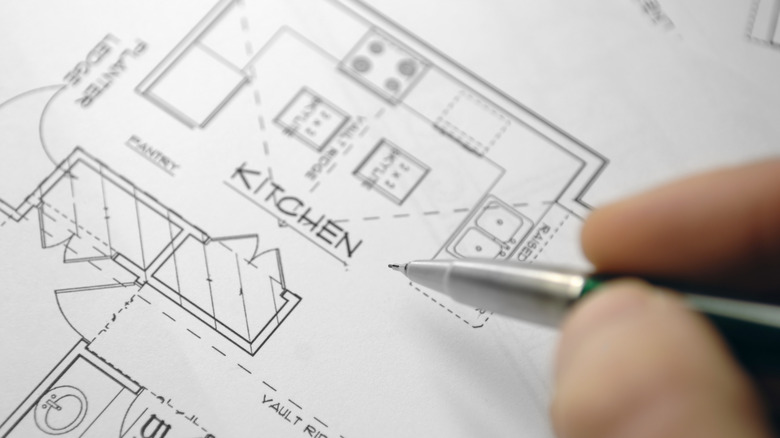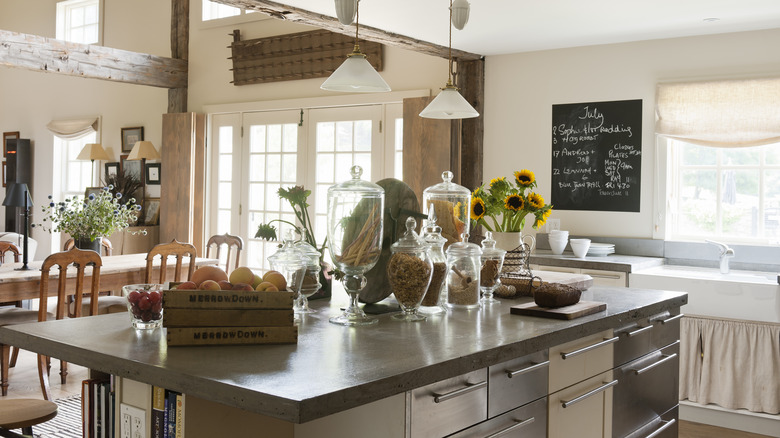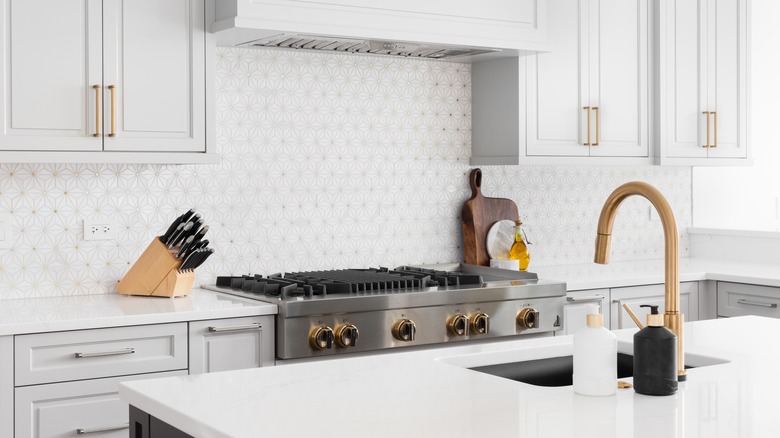Why You Should Avoid This Countertop Trend At All Costs
There are countless ways to design a kitchen to ensure it perfectly lines up with your personality and your family's needs. From flooring and backsplash options to your choice of appliances, there's a lot to consider. One of the most important things to think about is the different types of countertops you can choose from. These days, it's become trendy to choose concrete for kitchen countertops, and while this choice can be seem pretty attractive at first glance, it comes with some major drawbacks.
True, there are a lot of color and finish options to choose from and it can look stunning, but many homeowners don't realize just how much maintenance is required when with these countertops in the kitchen. Concrete countertops are notoriously difficult to maintain and are particularly vulnerable to damage from liquids. The sealer of these countertops can also be damaged by heat. To make your life easier, it may be best to avoid these countertops and opt for a lower-maintenance countertop material that has a similar look and feel instead.
Drawbacks of concrete countertops
The major problem with concrete countertops is that they are porous. This means that stains can become a big problem. The porous material is prone to serious damage from liquids and can absorb them extremely well. Heat can break the seal on concrete countertops and liquids can easily break through the porous material. Once a liquid spills and seeps into the crack, bacteria may start to grow. Although concrete is considered durable, it also prone to chipping and cracking.
If you decide to throw caution to the wind and install concrete countertops, getting them installed by professionals is essential — this is one DIY project Chip Gaines warns beginners to avoid at all costs. To protect concrete countertops, you'll need to be sure that they're sealed properly during the initial installation. To keep them protected over time, you'll also need to reseal them regularly, ideally every one to three years. This extra maintenance can be difficult when compared to other countertop materials and requires you to stay on top of things.
The best alternatives to concrete countertops
There's no shortage of great countertop options, but everybody's preferences are different. If you want to get a countertop that looks very similar to granite but that comes with fewer of the disadvantages, there are several great options to choose from. One of the best options to consider is quartz countertops. Some colors and finishes are made to mimic the look of concrete. Quartz is more expensive, but because the installation of concrete countertops is more complex and requires professionals, it usually ends up being the cheaper choice overall. Quartz is also much easier to maintain — it's non-porous and doesn't require regular sealing the way that many other countertop materials do.
Granite countertops are another option to consider. These countertops are generally cheaper than concrete, and although they are porous, they're very easy to maintain and clean. They're scratch and heat-resistant and can be made to look more like concrete if you choose a leathered or honed finish. There are a few important things to know about soapstone countertops, but they can also be a good alternative to concrete as well. Although natural stone, soapstone countertops are non-porous and incredibly dense, resisting staining and discoloration well. The material has special thermal properties which allows you to place cookware such as hot pans on it without causing damage.


